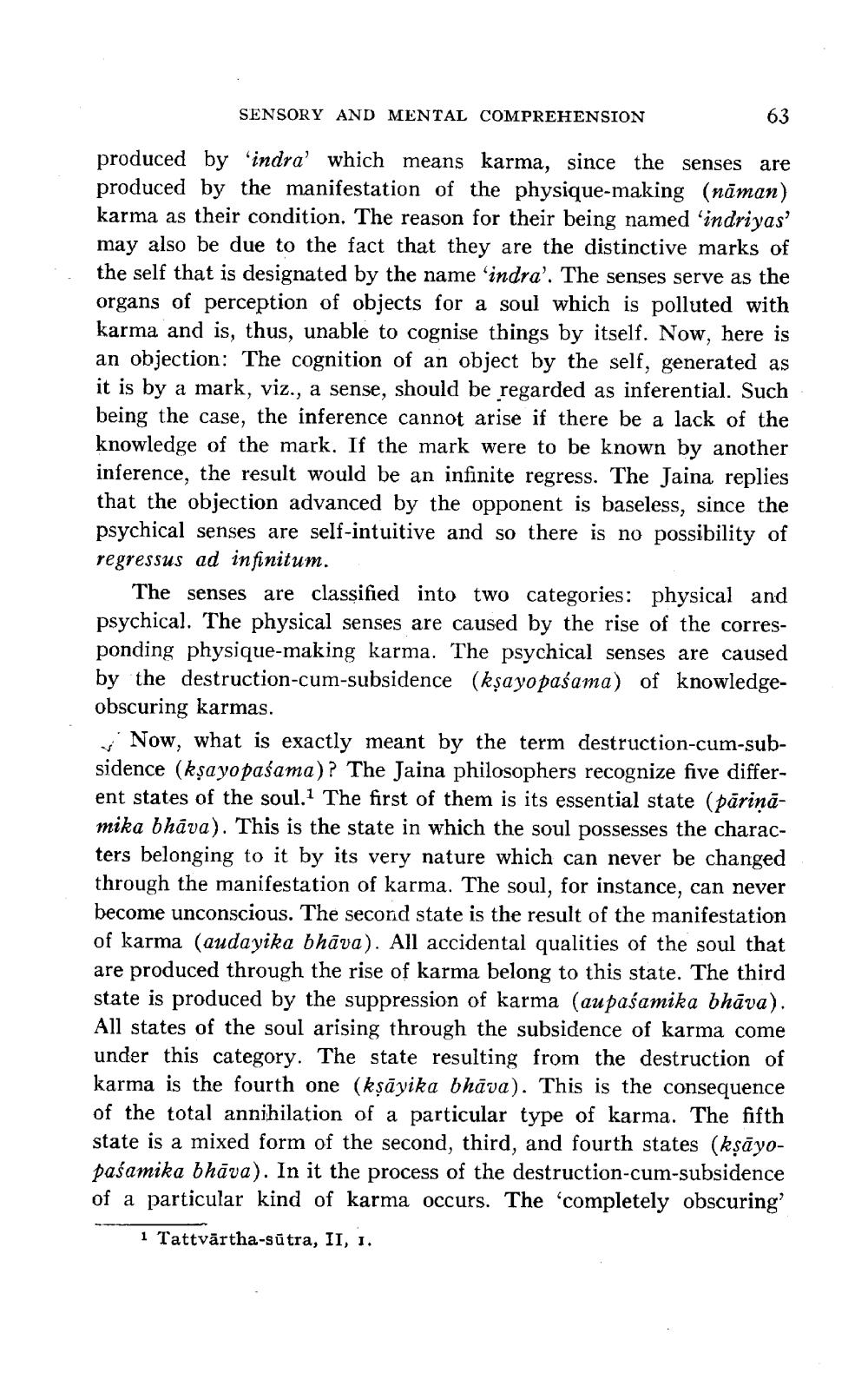________________
SENSORY AND MENTAL COMPREHENSION
63
produced by'indra' which means karma, since the senses are produced by the manifestation of the physique-making (nāman) karma as their condition. The reason for their being named 'indriyas' may also be due to the fact that they are the distinctive marks of the self that is designated by the name 'indra'. The senses serve as the organs of perception of objects for a soul which is polluted with karma and is, thus, unable to cognise things by itself. Now, here is an objection: The cognition of an object by the self, generated as it is by a mark, viz., a sense, should be regarded as inferential. Such being the case, the inference cannot arise if there be a lack of the knowledge of the mark. If the mark were to be known by another inference, the result would be an infinite regress. The Jaina replies that the objection advanced by the opponent is baseless, since the psychical senses are self-intuitive and so there is no possibility of regressus ad infinitum.
The senses are classified into two categories: physical and psychical. The physical senses are caused by the rise of the corresponding physique-making karma. The psychical senses are caused by the destruction-cum-subsidence (kşayopaśama) of knowledgeobscuring karmas. w Now, what is exactly meant by the term destruction-cum-subsidence (kşayopaśama)? The Jaina philosophers recognize five different states of the soul.1 The first of them is its essential state (pāriņāmika bhāva). This is the state in which the soul possesses the characters belonging to it by its very nature which can never be changed through the manifestation of karma. The soul, for instance, can never become unconscious. The second state is the result of the manifestation of karma (audayika bhāva). All accidental qualities of the soul that are produced through the rise of karma belong to this state. The third state is produced by the suppression of karma (aupaśamika bhāva). All states of the soul arising through the subsidence of karma come under this category. The state resulting from the destruction of karma is the fourth one (kṣāyika bhāva). This is the consequence of the total annihilation of a particular type of karma. The fifth state is a mixed form of the second, third, and fourth states (kṣāyopaśamika bhāva). In it the process of the destruction-cum-subsidence of a particular kind of karma occurs. The completely obscuring
1 Tattvärtha-sūtra, II, 1.




